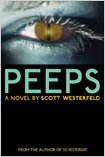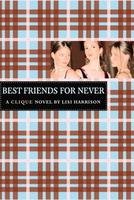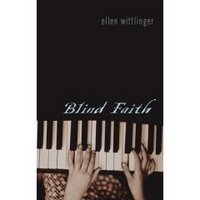I know that one is not a statistically significant number. But I am not a young woman and I just can't sacrifice any more of the precious time left to me reading this stuff. So just recognize that I'm generalizing on the basis of only one example per series.
Will These Books Turn Teenage Girls Into Slutty Shopaholics?
Personally, I can't believe readers take this stuff seriously. I don't care how young they are. And if they do take it seriously, I'd be more concerned about them becoming depressed than running wild in the streets. I thought these things were supposed to be chicklit. Perhaps I don't know what chicklit is. I thought it was light and fluffy. Fun. Humiliation isn't fun. Being ganged up on isn't fun. Binging and purging isn't fun. Having guys corner you in the women's room, pull your strapless evening gown down, and fondle your breasts is not fun.
Not that any of that has ever happened to me. I'm just guessing.
I've read that some adult women say they attended private schools in New York City and Gossip Girl, in particular, is true to their experience. Kudos for living through your adolesence, ladies. But if any of these stories reflect any kind of reality at all, it's a reality that pertains to a very limited portion of the population. The rich portion, of course. The majority of the kids who read these books aren't rich, and they know it. Most of them don't even know where to go to find the Prada that even middle schoolers shop for in these books. Most readers are going to know that this is not about them.
Nonetheless, I suppose you could say that reading books of this kind will make teenagers insensitive to the abuse portrayed or make them accepting of it as normal the way watching violent images on TV desensitizes younger children and encourages them to engage in violent behavior. I don't know if any studies have ever been done that show that reading has the same kind of impact as watching images. I think you have to do more processing when you read than when you watch an image. That extra processing may give your rational mind an opportunity to do some extra thinking and use some judgment that it doesn't get a chance to do when hit directly by an image.
Personally, I need to see some real evidence that these books are having a negative impact on kids before I can believe it. In the meantime, I think we should give teenagers some credit for being able to separate fact from not very good fiction.
However, after reading these things I have to say that if I were a wealthy New York City mother with kids who had unlimited access to money and little supervision, I'd be really worried.
Do These Books Exploit Teenagers As A Market?
None of these books are books in the traditional sense of the word. They do not communicate an author's vision. The ones I read were not even complete--they left storylines dangling to entice readers to buy another installment.
All three series were "packaged books" from Alloy Entertainment. Remember, Alloy
does market research before the books it sells to publishers are written. According to a recent New York Times article "In many cases, editors at Alloy...craft proposals for publishers and create plotlines and characters before handing them over to a writer (or a string of writers)." Cecily von Ziegesar came up with The Gossip Girl herself--while she was working for Alloy Entertainment. She wrote the first eight books, but according to the May issue of Vanity Fair, with the ninth book she began "to help plot and heavily revise" the books.
The books aren't books, they are marketed products.
Yes, marketing is part of the book business, and I've been moaning and groaning about it plenty here in recent months. But, traditionally, the marketing comes in after the book is written, when it needs to be sold. With these products, the marketing starts before conception.
Kids who read these books are buying into what the marketers are telling them they (the kids) want to read. The wonks at Alloy study the teen market and on the basis of their conclusions regarding what they've learned, they create a product to sell to that market. Then kids line up and buy (literally and metaphorically) what they're being sold.
The fact that those marketers are telling kids they want to read these dark, sad, cookie cutter stories of money, drinking, and sex is really creepy. The fact that kids line up and take it is even creepier.
I'm sure you're all delighted that I'm finally through with this project. Believe me, you're nowhere near as happy it's over as I am.



